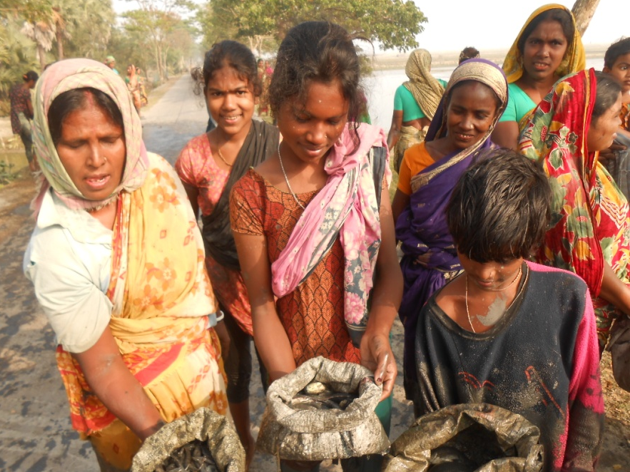A new, large-scale study into prawn and shrimp production in southwest Bangladesh carried out by our Associate, Dr Abdullah-Al Mamun in collaboration with Professor Dave Little at the Institute of Aquaculture and Professor Baukje de Roos from the Rowett Institute at the University of Aberdeen, has found that the industry is crucial to public health and prosperity, whilst being climate-resilient, contrary to its reputation.
The study was conducted over four years, collecting quantitative and qualitative data from 240 households and 160 shrimp-prawn farms in four different communities.
Contrary to criticism in recent years of the impact of export-driven prawn and shrimp farming on communities and the environment in Bangladesh, the study found that a relatively small amount was exported, providing important income for communities, and other fish production had a low impact on the environment, whilst providing crucial nutrition.
The researchers found that only 20-40 per cent of all the fish produced – the shrimp and prawn - was destined for export, with a high diversity of other fish being produced, sold and consumed locally in mainly small-scale enterprises.
Community fish harvest
Read the full story on the University of Stirling website
The full paper ‘Export-Driven, Extensive Coastal Aquaculture Can Benefit Nutritionally Vulnerable People’ is published in the journal, Frontiers in Sustainable Food Systems.

